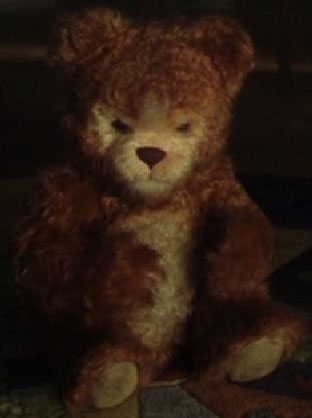
The
Producers
(1968)

Rated: PG
Runtime: 1 Hour and 28 Minutes
Reviewer: Dale
Grade: A+It's a great idea for a movie. So great, in fact, that it probably inspired the book I wrote (I say "inspired", I did not plagiarize it). The reason I watched it again recently was because it's hilarious and I wanted to see it again. But also because I have written a book that is about a man intentionally trying to make the worst film of all time, and I wanted to make sure that I hadn't subconsciously ripped it off. Thankfully, the two are nothing alike and my own book is still publishable (a vast relief seeing as how I have spent over three years writing and revising the damn thing) and bares only the most passing resemblance to Mel Brooks' ingenious film. I think I noticed more subconscious cribbing I had done without meaning to from "Singin' in the Rain" last time I watched it.
But whatever the reasons for me watching this fine film, I did so. And I have to say that I believe it is Mel Brooks's finest hour. Well, his finest hour and a half actually. There might be a couple more laughs in "Young Frankenstein" or "Blazing Saddles", but I doubt it. I doubt there was anything in those two films (or anything else in Brooks' ouevre, including the oft-overlooked and very hilarious "Twelve Chairs") that compares with the side-splitting spectacle of "Springtime For Hitler". But I shall get to that soon enough.
"The Producers" is the story of two of life's losers. One is Max Bialystock (Zero Mostel). Max was once one of the biggest producers on Broadway. Now, however, his shows are most apt to close the same night that they open. He lives in impoverished squalor and has to seduce rich, little old ladies in order to raise money to produce his plays ("Did you bring checky?" he asks one rich, old bird midway through seduction, "Can't produce plays without Checky.")
One day, this loser meets another loser: Leo Bloom (Gene Wilder, comic god). To call Leo a shy man would be an immense understatement. He is almost cripplingly bashful and paranoid. (The moment in which he thinks Max is going to jump on him and kill him is one of the funniest moments of any film ever.) He is an accountant who has come to review Max's pitiful books and make sure they are in order. It is while doing this that he makes the offhanded remark that "conceivably, one could make more money with a flop than a hit". This sets the wheels of Bialystock's imagination into motion. Soon he is bullying Leo into assisting him in raising two million dollars for the worst show in Broadway history, which will only cost a hundred thousand. No one ever asks for returns on their investment when a show flops, you see, so they will never have to pay anyone back. They can take the money and go to "Rio, Rio by the sea-o!" They pick the worst play known to man: "Springtime For Hitler: A gay romp with Adolph and Eva" and hire a director who is more than a little effette and has a prediliction toward musical comedy. Then they hire a dense hippie as their Adolph. It's an inspired plan. It can't help but work.
Except that it doesn't. And the consequences are hilarious.
Zero Mostel and Gene Wilder are a brilliant comic team here. Zero is a bully and Gene is a mouse: a hysterical combination that is funnier than it has any right to be. But also worthy of note in the cast are Dick Shawn and Kenneth Mars. Dick Shawn is the hippie moron hired to play Hitler in the production and his mixture of Hitler dialogue with hippie slang is more than worthy of the price of this film's rental ( "Where's Goebbels, man? I need my Little Joe!").
And Kenneth Mars (you may remember him as the constable with a wooden arm in "Young Frankenstein") is inspired as a Nazi refugee playwright whose only friends are pigeons and who has a burning desire to make people see the Hitler he loved. His descriptions of Hitler versus Churchill are comedic brilliance. ("Hitler was better looking than Churchill! He told funnier jokes!") And the moment when you see a group of high-kicking, goose-stepping Nazis perform the musical number "Springtime For Hitler" while the audience looks on with their jaws literally agape is sheer genius. Based solely on this evidence, I would have to rank Brooks among the greatest of all comedy directors.
Roger Ebert once called this his favorite of all comedies and while I wouldn't go quite that far, I would have to admit that it is one of them. Brooks had not yet surrendered to his impulse toward fart humor (he hadn't on "Young Frank" either) or excess. Though there is enough excess here in the correct proportions and it works marvelously. He gets pristine performances out of all his actors and, in case you haven't noticed, the dialogue is so great it should be bronzed. The timing is perfect. The ending is perfect.
This is as close to perfection as Brooks ever got. "Young Frankenstein" is on equal footing with it. But I'm sure you have already seen that one. If you haven't seen "The Producers", however, you are missing something incredible. You are in for a helluva treat.
